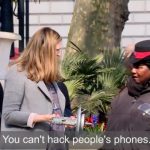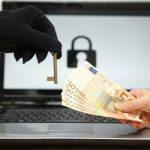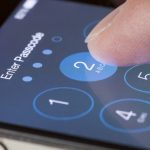Bitcoin creator Satoshi Nakamoto revealed to be Australian entrepreneur Craig Wright

For some time, the person who created the cryptocurrency Bitcoin has been known as Satoshi Nakamoto. We know that was nothing more than a pseudonym, and now Australian entrepreneur Craig Wright has revealed that he is the man behind the mask.
It brings to an end years of speculation about the inventor's real identity, and Wright has been able to provide technical proof to the BBC to back up his claims. The IT and security consultant's home was raided in recent days as part of an investigation by the Australian Tax Office, and documents leaked from the inquiries pointed towards Wright. He has now confirmed his identity.
Human rights group Liberty rips into Snooper's Charter with video highlighting privacy issues

The Snooper's Charter -- or the Investigatory Powers Bill -- is a highly controversial piece of legislation the UK government is trying to bring into force to allow for the bulk collection of data, NSA-style. Outside of government, it is widely regarded as a massive invasion of privacy, and the human rights group Liberty is just one of the organizations that is very vocally opposed to it.
The bill will require ISPs to record customers' browsing histories for an entire year, and will permit the government to remotely hack phones and computers, as well as requiring tech companies to provide backdoor access to encrypted data. To highlight what is at stake, Liberty is running a No #SnoopersCharter campaign, and has released a video that attacks the notion of 'if you have nothing to hide, you have nothing to fear' head on.
Remove CryptXXX ransomware with Kaspersky's free decryption tool

Security firm Kaspersky has released a tool that can be used to decrypt files on computers hit by the CryptXXX ransomware. Rather than paying the ransom demanded to regain access to files, victims are now able to turn to the free RannohDecryptor utility.
CryptXXX had been identified by ProofPoint earlier in the month and described as being closely linked to the Reveton ransomware operation and Angler/Bedep. The ransom of $500 is considered to be quite high, but Kaspersky's free decryption tool means that files can be retrieved without having to part with a cent.
More apps and websites leak credit card data on enterprise handsets

In its latest quarterly Mobile Data Report, Wandera has revealed a significant rise in apps leaking credit card data on enterprise mobile devices.
The company, which specializes in mobile data security and management, compiled the report by analyzing the data usage trends and traffic patterns across its global network of enterprise mobile devices. Between Q4 2015 and Q1 2016, there has been a 17 percent increase in apps and mobile websites leaking credit card data.
It cost HOW MUCH to crack the San Bernardino iPhone?!

There are a lot of questions still to be answered about the San Bernardino iPhone that saw the FBI and Apple go head to head. After something of a battle, the FBI found someone to crack the iPhone. But who exactly did it? How did they do it? Will Apple be told how to do it in private? But one question that has also been lurking in the background is just how much it cost to hack into a single iPhone.
Now we know the answer. Not precisely, but we have a pretty good idea. Perhaps unsurprisingly, cracking the iPhone at the center of one of the most interesting technology cases in recent history, was not cheap. In a somewhat roundabout way, FBI Director James Comey revealed that the cost was more than $1.34 million.
EFF sues Justice Department to discover if secret orders are used to decrypt user data

EFF (the Electronic Frontier Foundation) has filed a Freedom of Information (FOIA) lawsuit against the Justice Department. The digital rights group wants to learn whether the government has made use of secret court orders to force tech companies to provide access to encrypted user data.
After the Apple vs the FBI battle, there has been renewed interest in how companies handle not only encryption, but government requests for access to such data. With services such as WhatsApp enabling end-to-end encryption, attention has now switched to what might be happening in the background without users' knowledge. While Apple very publicly refused to provide decryption keys, EFF -- and others -- are concerned that secret court orders may be used to hide what is really happening.
China wants Apple's source code, but Apple refuses to hand over the goods

Apple has revealed that Chinese authorities have asked for access to the company's source code in the last couple of years. The revelation was made by Apple general counsel Bruce Sewell as he tried to deflect accusations that have sprung up in the wake of the San Bernardino iPhone case.
The battle between Apple and the FBI rumbled on for a while as authorities asked the iPhone manufacturer to crack encryption or provide a backdoor into the phone at the center of the case. Apple refused to help the FBI, leading to accusations that the company was failing to help US authorities whilst assisting those abroad. Apple categorically denies handing over information to the Chinese authorities.
Viber introduces end to end encryption

The major messaging services are now placing a greater emphasis on their users' privacy and security, following the heated encryption debate started by Apple and the FBI. Viber has just announced end-to-end encryption support, making it the second leading player this month to introduce this feature after WhatsApp.
Viber has over 700 million users across the globe, but its end to end encryption feature will not be available everywhere right away. The company is focusing on Belarus, Brazil, Israel and Thailand first, with other markets to get the same treatment in the weeks that follow.
'Let's Encrypt' exits beta -- backed by Cisco, Akamai, Mozilla, Google, Facebook, and more

Ever since hero Edward Snowden's bombshell document leaks, the technology world has wide eyes for encryption. Sure, it was a topic prior to Snowden, but many failed to give it the focus it deserved. Thankfully, companies are now better implementing encryption, and some of them, such as Apple, are fighting for our rights too.
Today, the encryption initiative, 'Let's Encrypt', finally leaves beta. Josh Aas, ISRG Executive Director says "we set out to encrypt 100 percent of the Web. We're excited to be off to a strong start, and with so much support across the industry". If you are wondering what he means, please know that big players such as Cisco, Akamai, HP, Mozilla, Google, and Facebook are sponsoring it. But what exactly is Let’s Encrypt?
Keygen alert: free password generator released for PETYA ransomware

The PETYA ransomware is just one of the recent examples of malware that encrypts victims' hard drives until a fee is paid. The advice from the government is not to pay the ransom -- or at least not expect to get a decryption key if you do -- but a password generator has been created that means you can decrypt your hard drive for free.
While TeslaCrypt 4 boasts 'unbreakable encryption', the same cannot be said of PETYA, although the PETYA ransomware does have the irritating habit of overwriting MBRs. This does mean that there is no way to interact with the drive on the infected computer, but with access to a spare machine to read the drive and access to the online tool created by Leostone, you could have your data back in seconds. As the tool's website proudly proclaims, you can "Get your petya encrypted disk back, WITHOUT paying ransom!!!" -- here's what you need to do.
Draft encryption bill could spell the end of privacy and security as we know it

Apple's battle with the FBI has focused the attention of the technology community on encryption. But while just about all of the big players in the tech world backed Apple's refusal to create a backdoor for the FBI into iOS, Congress has a very different idea about how encryption and governmental access to data should be handled. This is perfectly demonstrated by a new bill.
The draft version of the Compliance with Court Orders Act of 2016 -- penned by Senators Diane Feinstein and Richard Burr -- would essentially force all US companies to decrypt data they may have encrypted, or to provide backdoors when asked. It's a bill described variously as 'dangerous', 'encryption-weakening', and 'anti-security', and it starts off aggressivley in stating that "no person or entity is above the law". In effect, it renders the encryption put in place by the likes of WhatsApp completely pointless as, if the bill is passed, companies would have to decrypt data on demand.
Maktub ransomware phishing scam knows your home address and uses it as leverage

Ransomware is one of the most prevalent security threats at the moment, and each week there are new examples that up the ante a little more. In recent months we have seen cross-platform ransomware, Tesla 4's unbreakable encryption, and the MBR-overwriting antics of PETYA, but a new phishing scam takes another approach.
In a cleverly orchestrated campaign, a phishing scam is doing the rounds whereby malware meets social engineering in a bid to extract cash from victims. It marries together the file-encrypting Maktub ransomware with a thinly-veiled threat -- home addresses. Quoting victims' home addresses to them serves two purposes: it adds a level of authenticity to the phishing email, but also acts as additional leverage by upping the fear level.
WhatsApp's end-to-end encryption is not all it's cracked up to be

Just a few days ago, WhatsApp trumpeted the roll out of end-to-end encryption for its messaging service. The world rejoiced. With events such as the battle between Apple and the FBI turning attention to encryption, the announcement was well-timed to ride the crest of the wave. But it seems that for all of the bluster and bravado, the news about extra protection may not be quite as good as it seems.
Analysis of WhatsApp's privacy documentation reveals that the Facebook-owned company retains a huge amount of data about messages that are sent. If this all sounds familiar, it's because the retention of metadata is precisely what the NSA was (is?) up to, trawling web communications and upsetting Edward Snowden and privacy advocates around the world. WhatsApp's encryption and policies mean that those who are concerned about their privacy should not rest on their laurels.
FBI briefs senator about how it cracked San Bernardino iPhone, but keeps Apple in the dark

It turned the case of the century in to the case that didn’t really happen. The battle between Apple and the FBI came to a sudden end last month when the US Justice Department said it didn’t need the iPhone manufacturer's help, and then successfully hacked its way into the iPhone in question.
With the San Bernardino shooter's iPhone seemingly successfully cracked, the FBI last night revealed to Senator Dianne Feinstein just how it managed it. There are no current plans to share this information with Apple, but FBI Director James Comey revealed that the tool that was brought in only works on the iPhone 5c.
The threat of ransomware is so great, the US and Canada issue joint security alert

Malware is far from being a new problem, but the inexorable rise of ransomware has taken many by surprise. There have been a number of very high profile instances of ransomware such as PETYA, and the threat is perceived as being so high that the US and Canada have taken the unusual step of issuing a joint security alert.
The likes of TeslaCrypt 4 feature 'unbreakable encryption' and use scare-tactics to encourage victims to part with their money. This is what has prompted the joint alert from the US Department of Homeland Security and the Canadian Cyber Incident Response Centre which warns about "destructive ransomware variants such as Locky and Samas". Interestingly, the advisory actively discourages victims from bowing to ransom demands.
Recent Headlines
Most Commented Stories
BetaNews, your source for breaking tech news, reviews, and in-depth reporting since 1998.
© 1998-2025 BetaNews, Inc. All Rights Reserved. About Us - Privacy Policy - Cookie Policy - Sitemap.